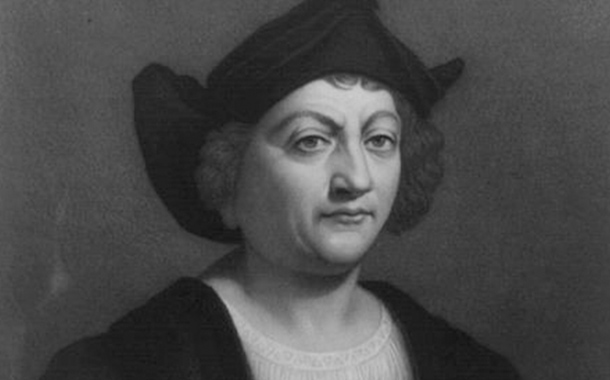<![CDATA[The 12th October 1492 stands as a crucial date in the history of the world. On this day, Christopher Columbus spotted an island in the Bahamas, an event that would prove to be the first step in the opening up of North and South America to European influence. The occasion is celebrated as a national holiday on the second Monday of October in the United States of America and considered a key event in the formation of the nation. Columbus' journey however, has become an increasingly contentious issue, as historians revise the long and short term impact of his discovery. When Columbus left Palos in Spain, on August 3rd 1492, it was in the belief that he would pioneer a Western Sea route to India and China. The major European Powers of the fifteenth century were aware of the riches of gold and spices available in Asia, but had no means of effectively exploiting them. There was no direct sea route, and the powerful Ottoman Empire prevented access through Egypt and the Red Sea. Columbus believed that only the Atlantic Ocean stood between Europe and the East Coast of Asia. He eventually secured the backing of King Ferdinand and Queen Isabella of Spain in January 1492, and was able to prepare his voyage. The true significance of Columbus' accidental discovery is difficult to adequately express. Within a hundred years, Spain would become the richest and most powerful country in the world, largely due to the huge opportunities and resources offered in the 'New World'. During the sixteenth century, the Conquistadors would tear through South America, taking gold and territory from the natives in the name of the Spanish throne. Following Spain, other European powers moved to exploit the huge new territory, and the New World soon came directly involved in the history of Europe. As the likes of Britain, France and Portugal raced to gather up resources and land, it became a theatre for imperial rivalries. The effects of this were devastating for the indigenous populations of North and South America. Columbus' arrival in the New World signalled the start of a brutal decimation of the indigenous peoples of the continent. The effects of this are in plain site today, with civilisations ranging from the Eskimos in Canada to Amazonian Indians perilously close to dying out. This abuse of local populations may have drastically accelerated with the arrival of the European Empires, but it started with Columbus. On his first day in the New World, Columbus ordered six natives to be enslaved, an act which would prove an ominous omen of what was to come. Throughout his time in the Americas, Columbus enacted strict policies of forced labour, and forced conversion to Christianity. On one of his later voyages, he sent thousands of Taino Indians away from their home in the Caribbean to work as slaves in Spain. The slave trade may have already been growing in Europe, but Columbus was its pioneer in the New World. Columbus Day is becoming an increasingly controversial holiday in the United States. For some Americans, Columbus symbolises the opening of a new world of opportunity. For others, he stands for the expansion of the slave trade, the devastation of indigenous peoples and a host of other evils associated with Europe's movement into the Americas. Increasingly, cities in North America are split between those who celebrate the day, and those who view the man it is named after as a slaver and instigator of genocide. The latter use the day to campaign over civil liberties issues, highlighting the ongoing consequences of events that had their origin on 12th October 1492. As the contentious anniversary approaches, it is an opportunity for the entire world to reflect on the pivotal role Columbus' voyage played in shaping the world we now live in. Put simply, the consequences of Columbus sighting land in 1492 went on to shape over five centuries of history. ]]>
Looking Back on Columbus and the New World
